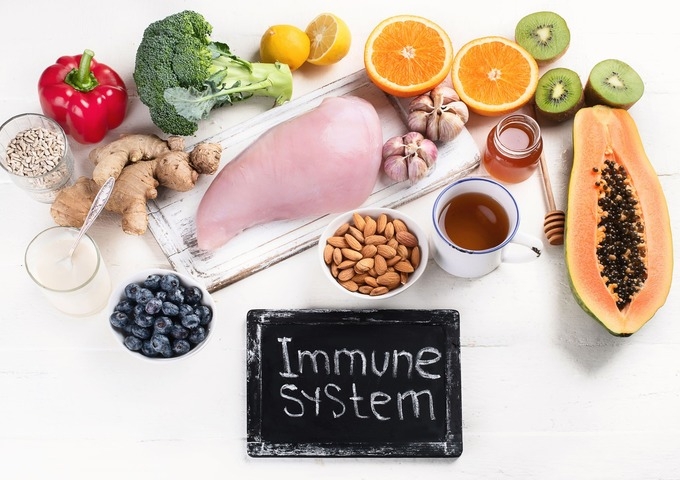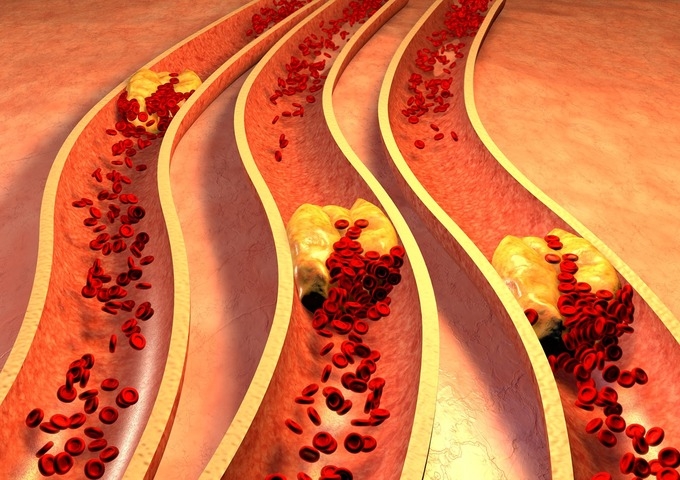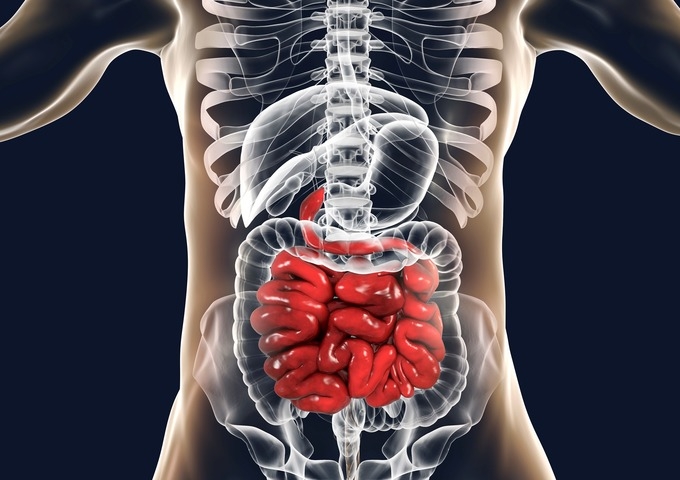Do you feel sick, tired or just moody all the time? Are you feeling just a general sense of unwellness and bloatedness whenever you have any food? Well, it's time to find out why taking care of your gut or digestive health could potentially change your life for the better! Hence, choosing the best supplement for digestive health in Malaysia is key! When it comes to maintaining good health, many people don't realize that there's nothing more important than a healthy gut. In fact, experts now believe the gut is so important to our overall wellbeing they're referring to it as our "second brain". With the latest research showing that our gut influences everything from our weight to our mood, health experts agree that looking after our digestive health is the one of the most important actions we can take to keep our health on track. The key to unlocking good gut health, however, is in understanding our microbiome – the more than 100 trillion bacteria that live inside our gut. What you eat, drink and your lifestyle will have a major impact on your gut flora. To put it simply, these bacteria and tiny organisms should always be in balance within your digestive tract, and any imbalance will affect our health! In this article, let's break down the different ways your digestive health affects your overall health, and how to choose the best supplement for digestive health Malaysia! How Does Your Digestive Health Impact Your Body? 1. It affects your immunity Feel like you're falling sick too often? Forget the antibiotics and take a look at what's going on in your gut. The sticky, mucous lining of your intestinal tract is incredibly sensitive and any imbalance in your gut flora can leave you exposed to viruses and less able to fight them off! 2. It can change your mood If you regularly have bad days when you're on the brink of tears for no reason, the cause could be imbalanced gut health. One good reason scientists now refer to it as our second brain is because more than 90 per cent of our serotonin (aka the feel-good hormone) is produced there. Hence, your gut majorly affects your overall mood - an unhealthy gut brings unhappy moods! 3. It can change the appearance of your skin While many might not associate rashes or irritated skin with digestion, it could be a sign of poor gut health. This happens when your intestinal walls are unable to heal from negative substances such as processed foods. Hence, you have what is commonly called a leaky gut, where bad bacteria is allowed to leak out into your bloodstream and causing inflammation. 4. It can severely alter your body's energy levels If you're feeling extra sluggish even after a light meal, your body is saying that it's struggling to digest your food! Your gut also defends your immune system from energy-sapping bacteria and viruses that promote illness and slow you down. How To Boost Your Gut Health With Nutritional Supplements While there are plenty of other ways you can boost your gut health, one of the best ways you can supercharge your gut microbiome is with Stolle's ImmuNuPlus, which is regarded by many as the best supplement for digestive health Malaysia. ImmNuPlus gives you a hard-to-find complex bioactive factors that are clinically proven to improve your gut health for a stronger immune system. Widely regarded as the best supplement for digestive health Malaysia, here are some of the reasons why Stolle is the best booster for your immune system include: Over 60 years of research have resulted in more than 20 published scientific studies, 200 awarded patents and international quality awards. Patented bioactive factors such as specific IgG , secretory IgA, lactoferrin and anti-inflammatroy factors directly support the immune system by balancing immune responses Our exclusive milk protein concentrate ingredient enhances the immune effects 1.5 times Multiple health care functions (Clinically proven to help balance the immune system and meet nutritional needs of every life stage while also meeting the health needs of the entire family Manufactured by the largest dairy company in New Zealand, assuring the highest product quality Cows are fed year-round on all-natural New Zealand pastures that are scientifically managed, thereby ensuring the highest nutritional value If you're looking to boost your gut health, give Stolle ImmNuPlus a try With Stolle ImmNuPlus, which is regarded as the best supplement for digestive health Malaysia, you can ensure your gut health is always at their fighting fit to keep illnesses at bay. Try it now - download our brochure at https://www.stolle.com.my/en/
more


Breakfast is often called the first and most important meal of the day. It is said that the best way to healthy living is to “eat breakfast like a king, lunch like a prince and dinner as a pauper”. In fact, a healthy, nutritious and heartful breakfast provides you the nutrients and energy needed to sustain throughout the day and provides many proven health benefits, such as supporting weight loss, kick-starting your metabolism, boosting immunity, maintaining blood sugar level, reducing risk of chronic diseases such as heart attack and diabetes and more. Concerningly, research studies have found that most Malaysians tend to make unhealthy breakfast choices or skip breakfast. Living in a country full of delicious delicacies, about 70% of Malaysians tend to have bread and pastries with hot drinks such as coffee and tea for breakfast, while 42% and 19% have high carbs and high fat food for breakfast. However, high carbs and fat does not always equivalent to highly nutritious. Studies have shown that eating breakfast promotes longevity, and that the right breakfast choice is the key to sustained energy and long-term health. But have you been eating breakfast right? 3 Common Breakfast Mistakes 1. Skipping Breakfast Always on the go or trying to save calories by skipping breakfast? You might always find yourself sluggish and unable to focus in class or at work. Evidence showed that skipping breakfast can cause your blood sugar levels to drop, which can make you feel tired, lightheaded or even moody. Besides, it can also negatively affect your brain function, resulting in reduced brain excitability, slower response and reduced in attention, making you unable to get your daily tasks done. In fact, studies have found that skipping breakfast can lead to weight gain, increasing the risk of obesity by 48% and abdominal obesity by 31%. This is because when you skip meals, your metabolism tends to slow down and goes into survival mode. This increases your appetite, making you crave food and overeat, which eventually leads to weight gain. 2. Imbalanced breakfast Popular breakfast choices such as coffee with bread, milo with biscuits are generally solely loaded with carbs, which can cause your blood sugar levels to fluctuate, making you feel sleepy after meal. In addition, these foods are generally low in fiber, which makes you feel less satiated and gets hungry easily. Not to mention these foods tend to be less nutrient dense. After an overnight fasting period, a well-balanced and nutritious breakfast is essential to replenish your body with adequate energy and nutrients to sustain you throughout the day and for long-term health. 3. Not eating enough protein Malaysians’ breakfast choices are always high in carbs, fat and calorie and seems to be missing protein. Add protein to your breakfast to make your breakfast more well-balanced. Studies have shown that eating enough protein can makes you feel fuller for longer and when eaten with carbs, it slows the release of glucose in the blood, stabilizing your blood sugar level, giving you sustain energy throughout the day. Besides, protein takes longer time to digest in your body than carbs and fat, which helps to boost your metabolism and support weight loss. Eat a Carbs, Protein and Fiber Dense Breakfast Eating a healthy breakfast is a way of healthy living. Choose a variety of nutrient-dense food to make your breakfast heartful and well-balanced. 1. Carbohydrate Carbohydrates, or carbs are your body’s main source of energy, which are mainly found in popular breakfast choices such as bread, pastries, rice or noodles. Occasionally, whole-grain foods such as oat and whole-wheat bread are also excellent choices of breakfast to add fiber to your diet. 2. Eat enough high-quality protein Your body needs protein to function properly. It helps to build and repair cells, makes up your bones, skins and hair, produces antibodies, and more. Foods such as eggs, milk, lean meat are great sources of high-quality protein, which contains all essential amino acids and makes a balanced breakfast to sustain health. 3. Eat plenty of fruits and vegetables Fruits and vegetables are great sources of fiber, vitamins and minerals, which makes a huge part of a balanced diet. Eating enough fiber helps to prevent constipation and makes you feel fuller for longer. Incorporate a variety of fruits and vegetables into your breakfast to nourish your body with nutrients, which is essential for optimal health.
more
Working from home has become the new normal for many Malaysian office workers. As the government has introduced strict measures to allow only 30% of management staff to come into the workplace to flatten the Covid-19 curve, most Malaysian households have now fully embraced working remotely! In this article, we'll discuss the different benefits and disadvantages of working from home, the natural way to fight fatigues and the best energy supplements for fatigue you can find in Malaysia! While there might be many advantages and benefits from working from home, there are also some negative effects that come from it that are often rarely discussed. Some of them are: 1. Increased feeling of isolation Often, professionals working from home complain of isolation and loneliness given their removal from their bosses and coworkers and this can be depressing to some. Since the workplace provides a location to meet and befriend, professionals working from home have to be more creative and resourceful in staying in touch with their colleagues. 2. Plethora of distractions Although office distractions are avoided by working at home, different distractions may arise. Interruptions from children, work, neighbours, friends or family may be very disruptive. Special efforts must be made to make it known that you are actually working and unavailable for interruption within work hours despite our physical presence at home. 3. Difficulty in separating home from work The temptation to engage in household matters since you are at home is often very strong. You may start feeling obliged to clean the home while meeting the full requirements of the job too. It is essential to draw the line between home and work to avoid both areas suffering. 4. The workload and time doesn't end Since there is enforcement of strict hours, the pressure to work endlessly may be compounded by the fact that you feel there are greater expectations made of you as a home-worker. Moreover the lack of physical separation between home and work may add to this pressure to work endlessly. It might be much harder to find the right balance between business and personal life. There are two big traps, the first being working all the time, since the computer desk is always near. If you're constantly working without proper breaks or any kind of life-work balance, work productivity declines fast in the long run. All this ends up with many Malaysian professionals feeling fatigued and both physically and mentally exhausted all the time. This can include feeling sluggish, having no energy and general lack of vigor in their wellbeing. How To Naturally Boost Your Energy Working from home takes a lot of dedication, self-control and discipline. To motivate yourself to persevere in working at home alone over the long run without succumbing to fatigue is a tough feat. Nonetheless, this can be easily countered and even reversed with a few natural ways to boost your energy. 1. Make sure you get quality sleep Sleep deprivation is one of the primary causes of fatigue. While we glorify self-sacrificing and being extra hardworking while working remotely, having bad quality sleep all the time will result in fatigue faster than you think. Here are some recommended tips to help you sleep better: Turn off the phone, computer, and television an hour before you go to bed Make sure your room isn't too hot. Use the air conditioner if need be. Your energy levels are worth it! Stop eating several hours before bed, consuming caffeine after noon, and drinking alcohol as they are disruptive to restful sleep Exercise regularly but not too close to bedtime, as it may keep you up 2. Make sure you get plenty of exercise Have you ever noticed how vibrant and energetic people are who exercise regularly? It may seem counterintuitive to spend energy through exercise to increase energy and reduce fatigue, but an overwhelming amount of research shows this to be true. Regular exercise can increase the levels of energy-promoting and mood-enhancing bodily chemicals. Additionally, exercise increases oxygen and nutrients to your tissues and helps your cardiovascular system work more efficiently. When your heart and lung health improve, you have more energy to tackle every day! 3. Drink plenty of water throughout the day Staying hydrated is integral to maintaining healthy energy levels. Many of your body's daily biochemical reactions require water. If it's a warm day or you've been exercising, your body needs even more water to stay adequately hydrated. Of course, water intake recommendations vary depending on gender, age, weight, and activity level - a healthy average is 2 to 3 liters a day for an average adult. Try Envita Vigor Plus energy booster supplements to reinvigorate your energy levels naturally You can also try using supplements to boost your energy and defeat fatigue. In fact, Envita Vigor Plus is one of the best energy supplements for fatigue out there in the market. Envita Vigor Plus contains unique bioavailability-enhancing technology that eliminates toxic waste, boosts overall vigor and increases absorption effectively! Some of the reasons why Envita Vigor Plus is the best energy boosting supplement to fight fatigue include: Liver protection from the enriched formula that boosts overall vigor Optimized with a unique formulation that accelerates the elimination of toxic waste High potency antioxidants for optimal performance every day Added bioavailability enhancers for better absorption and utilization Here's how Envita Vigor Plus is made to boost your energy levels and fight fatigue to its core: Better absorption Vigor Plus contains unique bioavailability enhancers added for better absorption. These bioavailability enhancers allow curcumin to be delievered to the liver effectively with increased absorption No sugar added Vigor Plus is made with a sugar-free formula to allow you to enjoy its great taste without adding sugar into your diet Paired with strong antioxidants to provide effective liver protection The combination of curcumin and antioxidants compounds effectively protects liver function, effectively reduce GOT and GPT, reducing inflammation and accelerating toxic elimination of liver Eliminates toxic waste and free radicals Improve the elimination of toxic waste and free radicals, boosting your overall vigor As one of the best energy supplements for fatigue. Envita Vigor Plus is perfect for those who are facing fatigue, stress and overworked issues as they're working from home right now. In times of Covid-19 and working from home, it's important to keep your energy levels at its best If you're facing uncertainty in times of Covid-19, a strong body that's balanced with energy booster supplements is your best bet to perform best in the new normal of working from home. With Envita Vigor Plus as your chosen energy booster supplement, you can stay one step ahead in making sure your work performance is not affected by fatigue and make career advances even in the face of Covid-19! Try it now - download our brochure at https://www.stolle.com.my/en/
more
With the Covid-19 pandemic still ongoing even with the vaccination efforts in Malaysia, it's more important now than ever before to keep your distance and keep safe from the dangers of being exposed to Covid-19. In fact, Malaysia's daily death case has recently reached its highest point - 24 people died in a single day on 8th February 2021 due to Covid-19! While many of us hear that it's important to keep our immune system in tip-top condition, you probably don't even notice it working away to protect you around the clock. However you'll know when there's something wrong as your immune system is your body's in-built defense system against illness and infection. If you've ever wondered what your immune system does, why it's so important, as well as one of the best ways to balance your immune system with supplements in Malaysia, read on! Basics of your immune system The main purpose of your immune system is to protect your body from viruses and bacteria. Without it, they'd have free reign and you'd be constantly falling ill. Your immune system works by recognizing the difference between your body's cells and alien cells, allowing it to destroy any that could be potentially harmful. This usually works well but can cause problems if your immune system wrongly classifies some of your own cells and attacks them instead! Why exactly do you need a balanced immune system? A robust and properly functioning immune system helps you go about daily life as you come into contact with germs and bugs from pets, other people and your environment. Without a healthy immune system, you could pick up infections and infectious diseases more easily, and the effects could be serious - even fatal. Your blood stream and key areas of your body contain white blood cells that can fight and destroy the viruses and bacteria they find. However, sometimes, our immune system can over react and even attack your body's own cells. This is what happens in the case of allergies like hay fever and autoimmune diseases. It's easy to take the immune system for granted because it does such a good job at keeping us free from infection around the clock! If you've got a healthy immune system, look after it and it will look after you. How to balance and stabilize your immune system For most of us, the best way to balance your immune system is to actively choose and practice a healthy lifestyle. This includes steps such as: i) Eating a well-balanced diet without starving yourself Forget about the idea of skipping carbs. In fact, your body needs carbohydrates to fuel muscles and produce much-needed energy for your immune system! ii) Get enough vitamins and minerals into your body system Some of the key vitamins that can bring a stable balance to your immune system includes: - Vitamins A, C & E - Vitamin D - Magnesium - Folic Acid - Zinc iii) Take care of your gut with probiotics Probiotics are some of the best ways you can balance your immune system and keep yourself healthy against any illnesses, can be helpful, particularly when you up your training a notch. A substance called Secretory IgA in particular provides protection against pathogenic microbes and can be credited as the first line of defence against bad bacteria, yeast, parasites and other toxins, which can lead to systemic inflammation and infections. You can also try using supplements to stabilize your immune system. In fact, ImmNuPlus by Stolle is one of the best immune support products out there in the market. ImmNuPlus by Stolle isn't merely a nutrient-rich product that contains the needed nutrition for your body's immune system. It provides a hard-to-find complex bioactive factors that are clinically proven to improve your quality of life and balance your body's immune system. Some of the reasons why Stolle is the best booster for your immune system include: Over 60 years of research have resulted in more than 20 published scientific studies, 200 awarded patents and international quality awards Patented bioactive factors such as specific IgG, secretory IgA, lactoferrin and anti-inflammatory factors directly support the immune system by balancing immune responses Our exclusive milk protein concentrate ingredient enhances the immune effects 1.5 times Multiple health care functions meet nutritional needs of every life stage while also meeting the health needs of the entire family Manufactured by the largest dairy company in New Zealand, assuring the highest product quality Cows are fed year-round on all-natural New Zealand pastures that are scientifically managed, thereby ensuring the highest nutritional value As one of the best immune support products in the market right now, Stolle ImmNuPlus can effectively optimize and rejuvenate your body's immune system to protect your health throughout this pandemic! In times of Covid-19, it's important to balance your body's immune system If you're facing uncertainty in times of Covid-19, a strong and balanced immune system is your best bet to protect yourself from any illnesses that might lead to susceptibility to Covid-19 and its similar conditions. With Stolle ImmNuPlus as your chosen supplement to stabilize your immune system, you can ensure you and your loved ones are kept one step ahead of any illnesses by boosting your immune system through a healthy lifestyle and nutrient-rich products! Try it now - download our brochure at https://www.stolle.com.my/en/
more
Did you know that your immune system is one of the most hardworking bodily systems you have? It works quietly but diligently to protect and support you every day in every way - it's like your personal defense system designed to work exclusively on your behalf! In this article, we'll explore all about the importance of having a balanced immune system, as well as one of the best supplements to stabilize immune systems for all Malaysians in this Covid-19 pandemic. How does your immune system work? Our immune system is essential for our survival. Without an immune system, our bodies would be open to attack from bacteria, viruses, parasites, and more. It is our immune system that keeps us healthy as we drift through a sea of pathogens. This vast network of cells and tissues is constantly on the lookout for invaders, and once an enemy is spotted, a complex attack is mounted. The immune system is spread throughout the body and involves many types of cells, organs, proteins, and tissues. Crucially, it can distinguish our tissue from foreign tissue - self from non-self. Dead and faulty cells are also recognized and cleared away by the immune system. If the immune system encounters a pathogen, for instance, a bacterium, virus, or parasite, it mounts a so-called immune response to destroy it and keep your body safe from them. Importance of having a balanced immune system Today, there are plenty of studies that have demonstrated that the immune system is one complex entity. It not only attacks foreign invaders that it identifies to be problematic, but it also affects your overall well-being, from your energy levels to the complexion of your skin. However, your immune function is incredibly sensitive to aggravators like poor diet, stress, aging, and lack of sleep - all of which can affect your immune health and possibly lead to an imbalance in your system. You see, a suppressed or weakened immune system can leave you susceptible to anything, while an overstimulated immune system can mistake harmless things in your body or in your environment for invaders and cause abnormal reactions. So when you're facing stress, not getting enough sleep, or experiencing other situations that challenge your immune system, you should keep in mind that a balanced immune system is critical to maintaining a healthy immune response. How to balance and stabilize your immune system For most of us, the best way to balance your immune system is to actively choose and practice a healthy lifestyle. You can follow these general tips on how to maintain good health. They are: Quitting the habit of smoking Have a moderate diet that's rich in fruits and vegetables Regular exercise and maintenance of a healthy weight Enjoy alcohol in moderation with less frequency Ensure you're always getting enough sleep and minimize your daily stress You can also try using supplements to stabilize your immune system. In fact, ImmNuPlus by Stolle is one of the best immune support products out there in the market. ImmNuPlus by Stolle isn't merely a nutrient-rich product that contains the needed nutrition for your body's immune system. It provides a hard-to-find complex bioactive factors that are clinically proven to improve your quality of life and balance your body's immune system. Some of the reasons why Stolle is the best booster for your immune system include: Over 60 years of research have resulted in more than 20 published scientific studies, 200 awarded patents and international quality awards Patented bioactive factors such as specific IgG, secretory IgA, lactoferrin and anti-inflammatory factors directly support the immune system by balancing immune responses Our exclusive milk protein concentrate ingredient enhances the immune effects 1.5 times Multiple health care functions meet nutritional needs of every life stage while also meeting the health needs of the entire family Manufactured by the largest dairy company in New Zealand, assuring the highest product quality Cows are fed year-round on all-natural New Zealand pastures that are scientifically managed, thereby ensuring the highest nutritional value As one of the best immune support products in the market right now, Stolle ImmNuPlus can effectively optimize and rejuvenate your body's immune system to protect your health throughout this pandemic! In times of Covid-19, it's important to boost and strengthen your body's immune system If you're facing uncertainty in times of Covid-19, a strong and balanced immune system is your best bet to protect yourself from any illnesses that might lead to susceptibility to Covid-19 and its similar conditions. With Stolle ImmNuPlus as your chosen supplement to stabilize your immune system, you can ensure you and your loved ones are kept one step ahead of any illnesses by boosting your immune system through a healthy lifestyle and nutrient-rich products! Try it now - download our brochure of Stolle products.
more
Ask any Malaysian over 30 today about their cholesterol levels and chances are, you'll have these two answers: high, or borderline high. In fact, based on a 2015 Malaysian National Health and Morbidity Survey, almost half (47.7%) of Malaysians above the age of 18 have unhealthy levels of cholesterol. That's almost 10 million Malaysians! In this article, we'll discuss the effects of cholesterol on your health as well as the ways to overcome high cholesterol levels and reduce high cholesterol with supplements. So what exactly is cholesterol and how it effects your body? At its basic form, Cholesterol is a waxy substance that can be found in your blood and in their respective cells. Cholesterol is mainly made in the liver while the foods that you ingest also produce cholesterol as well. While we often hear the negative effects of cholesterol, it is actually an essential part of your blood system to build strong healthy blood cells. Cholesterol itself isn't bad - it is needed to form digestive fluids, create vitamin D and even generate the hormones your body needs to help your various organs to function properly. However, having too much cholesterol is a major problem to your body, especially to your cardiovascular system. High cholesterol levels can cause dangerous accumulation of deposits on the walls of your arteries. These deposits (also known as plaques) will eventually reduce the blood flow of your arteries, causing complications such as: 1. The initial feeling of chest pains When arteries to your heart are affected by plaque and face difficulty in delivering blood, you might suffer from chest pain (angina). 2. A sudden heart attack A heart attack often comes in the form of a blood clot that is formed at the site where the plaque ruptures the artery. This blocks the flow of blood either or from your heart, and will cause a heart attack and death if not treated immediately. 3. A stroke Similarly to a heart attack, a stroke happens when a blood clot forms from the deposits of plaque blocks blood flow to the brain. What increases the risk of having high cholesterol levels? 1. Poor dietary choices Cholesterol levels are commonly raised by consuming large quantities of saturated fats over long periods of time. Saturated fat can be found in many animal products. Trans fat are similar culprits that are found in many ready-made processed foods such as chips and cookies. 2. Obesity and lack of exercise Compounding poor dietary choices is often the problem of high body fat percentage in the form of obesity. This often comes from the lack of exercise and having a sedentary, non-active lifestyle. 3. The habit of smoking Apart from their varying negative health effects to your lungs, cigarette smoking can also damage the walls of your blood vessels, making them much more susceptible to accumulate plaque and induce angina, heart attacks or strokes. Tips to reduce high cholesterol levels 1. Ensure your diet is filled with heart-healthy foods With just a few healthy changes to your day-to-day diet, you can significantly reduce your cholesterol levels. For example, you can reduce your intake of saturated fats such as red meat and full-fat dairy products. You can also eliminate trans fats found in processed cookies, cakes, chips and other pre-made food. Instead, you can opt for food rich in omega-3 fatty acids for heart-healthy benefits such as fish and seeds. 2. Exercise at least five times a week and quit the habit of smoking While it may be difficult at first, you should try carving out time for moderate physical exercises at least five times a week. Physical exercise, even in short intervals a few times a week, is a great way of reducing your cholesterol levels and strengthening your health in general. You can start by taking a brisk daily walk after work or playing your favorite sport more often. You should also take this time to quit the habit of smoking completely to help with reduce your blood cholesterol level. 3. Try using nutrient-rich supplements to reduce high cholesterol To boost your efforts in reducing your high cholesterol levels, you can try Stolle ImmNuPlus as an effective method to reduce your blood cholesterol back down to a healthy level. ImmNuPlus gives you a hard-to-find complex bioactive factors that are clinically proven to improve blood cholesterol levels. It also includes various benefits such as: Over 60 years of research have resulted in more than 20 published scientific studies, 200 awarded patents and international quality awards Patented bioactive factors such as specific IgG, secretory IgA, lactoferrin and anti-inflammatory factors directly support the immune system by balancing immune responses Our exclusive milk protein concentrate ingredient enhances the immune effects 1.5 times Multiple health care functions meet nutritional needs of every life stage while also meeting the health needs of the entire family Manufactured by the largest dairy company in New Zealand, assuring the highest product quality Cow are fed year-round on all-natural New Zealand pastures that are scientifically managed, thereby ensuring the highest nutritional value If you're looking to reduce high cholesterol with supplements, give Stolle ImmNuPlus a try With Stolle ImmNuPlus, you can ensure your cholesterol level is always in check to make sure your cardiovascular system as well as the rest of your body are in their best shape! Try it now - download our brochure at https://www.stolle.com.my/en/.
more
When it comes to a person's general state of health, it's the state of someone's heart, lungs or liver that usually comes to mind. However, there is another part of your body that significantly contributes to your overall health and wellness - our gut. In fact, various studies in the past decades have proven the link between a person's gut health and their immune system. This is much in contrast to what was once thought as a mere digestive system that simply comprises of a long tube to pass our food along to be absorbed and excreted. Today, you'll often hear the term “gut microbiome" used to describe the beneficial bacteria and various microorganisms living within your digestive system. It's now a known fact that a healthy person would have 300 to 500 different types of bacteria in their digestive tract at any one time, though most of them are beneficial and even necessary to have a healthy body! That's why it's important to maintain and protect the health of your digestive system by having a healthy variety of good bacteria within your gut. This not only enhances your immune system, it helps to lift your overall health, fight against obesity and much more. What are the symptoms of an unhealthy gut? Apart from various physiological factors, there are often psychological matters that start affecting your gut health as well. Factors such as excessively high stress levels, lack of sleep, or even taking a wrong dosage of antibiotics could damage our gut microbiome. From there, you can often spot the different ways that an unhealthy gut might show itself. Here are some common symptoms of an unhealthy gut: 1. You have an upset stomach If you have a noticeable discomfort with your stomach in the likes of gas, bloating or constipation, chances are your gut is in an unhealthy state. A happy, healthy and balanced gut will little difficulty in ensuring your digestive parts feel comfortable when processing food and eliminating waste. 2. You're experiencing unexpected weight change A sudden change of weight (either losing or gaining) without any reasonable explanation of dieting or exercising can be a sign of an unhealthy gut. This is because the weight change is often due to your body's impaired ability to absorb nutrients or store fat. 3. You have trouble sleeping or are in constant lethargy Another sign of an unhealthy gut is difficulty sleeping, insomnia or chronic fatigue even after a period of rest. The reason? Serotonin, a hormone that affects your sleeping mechanism, is produced in the gut! That's why an unhealthy gut can often bring about sleep disturbances and difficulty in getting your body rested and energised. Ways to improve your body's gut health 1. Try and ease up your stress levels While there might be plenty of things to be worried about, you can always try managing your stress level to get your gut health back up to normal. This can include activities such as taking time to walk off pressure, spending time with family or even meditation with the help of essential oils! 2. Make time for relaxation and sleep Apart from making significant improvements with your gut health, good quality and a healthy quantity of sleep can positively impact many areas of your health in general! Try capping off a minimum of 7 hours of sleep every night to ensure your body gets its rest after a long day of work and pressure. 3. Try boosting your gut health with nutrition and supplements While there are plenty of other ways you can boost your gut health, one of the best ways you can supercharge your gut microbiome is with Stolle's ImmNuPlus, one of the best supplements for gut health out there in the market. ImmNuPlus gives you a hard-to-find complex bioactive factors that are clinically proven to improve your gut health for a stronger immune system. Some of the reasons why Stolle is the best booster for your immune system include: Over 60 years of research have resulted in more than 20 published scientific studies, 200 awarded patents and international quality awards Patented bioactive factors such as specific IgG, secretory IgA, lactoferrin and anti-inflammatory factors directly support the immune system by balancing immune responses Our exclusive milk protein concentrate ingredient enhances the immune effects 1.5 times Multiple health care functions to meet nutritional needs of every life stage while also meeting the health needs of the entire family Manufactured by the largest dairy company in New Zealand, assuring the highest product quality Cows are fed year-round on all-natural New Zealand pastures that are scientifically managed, thereby ensuring the highest nutritional value If you're looking to boost your gut health, give Stolle ImmNuPlus a try With Stolle ImmNuPlus, you can ensure your gut health is always at their fighting fit to keep illnesses at bay. Try it now - download our brochure at https://www.stolle.com.my/en/.
more
Do you consider yourself a healthy person? Well, if you don't, you're not alone - Malaysians are increasingly unhealthy and our level of nutrition and health has been dropping for the past 20 years! In fact, the 2019 National Health Morbidity Survey (NHMS) report by the Health Ministry has shown a worrying result of Malaysia's general health - over 50% of our adults are either overweight or obese! What's worse - over 18% of all adults are diagnosed with Type 2 diabetes and over 38% of all adults have high blood cholesterol. More worryingly, these are double the levels of a survey done in 1996! This has majorly affected the immune systems of Malaysians in general. As our immune system is highly dependent on the level of function of our organs (think liver, lungs, etc) to generate the right parts to fight infection. They include the likes of white blood cells and antibodies that are the main front liners that fight infection. Therefore, if you've noticed that you're prone to falling sick easily with minor illnesses such as coughs, fevers and flu, or you constantly feel fatigued and weak, it's a warning sign that it's time to give your immune system a boost. Common signs of a weak immune system Before we delve into what are the best immune support products out there, here are some common signs that your immune system is weakened and needs strengthening: 1. Your flu comes and goes very often While it's a common thing to see adults experiencing colds and flu a few times a year, it is a worrying sign if your flu symptoms often fail to disappear completely and come back worse than before. This suggests that our immune system isn't fighting back against the cold completely, and it's a good indicator that your immune system is struggling to fight off the infection completely. 2. You face frequent stomach issues This might not be common knowledge, but your digestive system is a major part that affects your immune system significantly. Experiencing constant digestive issues such as high frequent diarrhea, bloating or constipation could be a sign that your immune system isn't working as it should be. This is due to an imbalance in the bacteria and microorganisms in your gut that supports your immune system. 3. You are always fighting off infections, one after another A never-ending episode of illness or unwell symptoms is a red flag from your immune system, saying that you might have deficiencies in your body's immune system. Some of the common symptoms are: Reoccurring ear infections multiple times yearly Falling ill to pneumonia more than once within a year Experiencing chronic or bacterial sinusitis on a frequent basis Requiring multiple courses of antibiotics within the year 4. You are constantly lethargic and out of energy If you're experiencing tiredness all the time even when you've been getting plenty of sleep and rest, it's time to acknowledge that your immune system has been severely compromised. Why? It's a sign that your body is attempting to preserve energy and redirect it to your immune system to make up for its weakness! How to boost your immune system For most of us, the best way to boost your immune system is to actively choose and practice a healthy lifestyle. While it's easier said than done, a healthy lifestyle can be argued to be one of the most effective ways to strengthen your immune system naturally. By following these general guidelines on maintaining good health, your immune system will be in fighting form naturally and be ready to protect you from most illnesses. They are: Quitting the habit of smoking Have a moderate diet that's rich in fruits and vegetables Regular exercise and maintenance of a healthy weight Enjoy alcohol in moderation with less frequency Ensure you're always getting enough sleep and minimize your daily stress However, with Covid-19 on our doorstep, sometimes it simply isn't enough to strengthen your body's immune system naturally. Be one step ahead and protect your family's health with ImmNuPlus, one of the best immune support products out there in the market. In case you're not aware, ImmNuPlus by Stolle isn't merely a nutrient-rich product that contains the needed nutrition for your body's immune system. ImmNuPlus gives you a hard-to-find complex bioactive factors that are clinically proven to improve your quality of life and balance your body's immune system. Some of the reasons why Stolle is the best booster for your immune system include: Over 60 years of research have resulted in more than 20 published scientific studies, 200 awarded patents and international quality awards Patented bioactive factors such as specific IgG, secretory IgA, lactoferrin and anti-inflammatory factors directly support the immune system by balancing immune responses Our exclusive milk protein concentrate ingredient enhances the immune effects 1.5 times Multiple health care functions that meet nutritional needs of every life stage while also meeting the health needs of the entire family Manufactured by the largest dairy company in New Zealand, assuring the highest product quality Cow are fed year-round on all-natural New Zealand pastures that are scientifically managed, thereby ensuring the highest nutritional value As one of the best immune support products in the market right now, Stolle ImmNuPlus can effectively optimize and rejuvenate your body's immune system to protect your health throughout this pandemic! In fact, it is highly recommended for anyone with these symptoms to give ImmNuPlus by Stolle a try: Those who fall sick easily due to weakened immunity after surgery and during influenza season Allergy sufferers Those who frequently experience gut problems Those who have high blood pressure or heart problems Those who suffer from high stress and poor sleep quality which can cause imbalance in their gut microbiome Lack of exercise or problems with cholesterol and high blood lipids Over 40 years of age with reduced physical function In times of Covid-19, it's important to boost and strengthen your body's immune system If you're facing uncertainty in times of Covid-19, a strong and healthy immune system is your best bet to protect yourself from any illnesses that might lead to susceptibility to Covid-19 and its similar conditions. With Stolle ImmNuPlus, you can ensure you and your loved ones are kept one step ahead of any illnesses by boosting your immune system through a healthy lifestyle and nutrient-rich products! Try it now - download our brochure at https://www.stolle.com.my/en/
more
Sarcopenia is a type of muscle loss condition related to aging. In our 40 years of age, our muscle mass tends to reduce 8% in every 10 years, followed by reduction of up to 24% after 70 years of age. This condition can lead to difficulties in performing daily tasks, affecting quality of life as well as causing disability in elderly. Malaysia is currently approaching to becoming an ageing nation by 2030, in which the percentage of Malaysians over 65 years of age is estimated to increase by 15% on that year. To live a healthy life as you age, maintaining muscle mass is one of the many essentials. 5 Signs of Sarcopenia Sarcopenia, if left unnoticed, can lead to various complications, ranging from feeling physically weak, unable to lift heavy objects, get tired easily, to increasing risked of falling, causing disability in elderly. If you have elderly at home, watch out for these signs: 1. Walking more slowly 2. Hard to grab objects 3. Moving difficulties 4. Falls easily 5. Unintentional weight loss Preventing Sarcopenia: Pair Nutrition with Exercise The rate of muscle loss varies from person to person. Sarcopenia is mainly caused by an unbalanced diet and lack of physical activity. But through proper nutrition and exercise, sarcopenia can be reversed and prevented. 1. Eat enough protein (and food) Many elderly tend to eat a lot less as they age due to the ‘you should eat lesser as you age’ mindset, decreased appetite or practice restricted eating due to chronic diseases. This causes them to be protein and calorie-deficient, leading to decreased muscle mass. Protein is one of the macronutrients crucial for maintaining and repairing muscles. The elderly are recommended to consume 1g of protein per kg body weight. Choose high-quality protein sources such as skim milk, egg, lean meat and beans to obtain essential amino acids, which is ideal to maintain muscle mass. In addition, eat three full meals a day and prioritize a balanced and nutritious diet to prevent muscle loss. 2. Resistance training Make exercise a habit and do at least 2-3 times of weight training a week to maintain muscle mass and strengthen muscle. Get started by walking first, with gradual increase of distance on each session. Not to mention that nowadays, sarcopenia also affects the young due to sedentary lifestyle, so start young in preserving and strengthening muscle mass. Reference: Healthline
more







